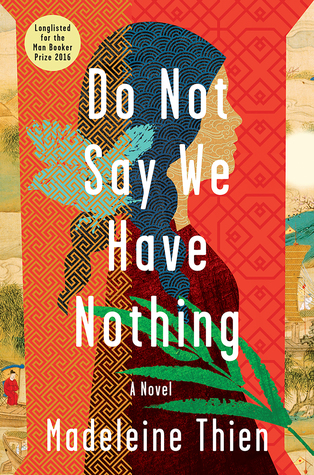 “Sparrow, she slowly pieced together, had been one of Shanghai’s most renowned composers. But after the Conservatory was shut down in 1966 and all five hundred of its pianos destroyed, Sparrow worked in a factory making wooden crates, then wire, and then radios, for two decades. Ai-ming heard him humming fragments of music when he thought no one was listening. Eventually she came to understand that these fragments were all that remained of his own symphonies, quartets and other musical works. The written copies had been destroyed.”
“Sparrow, she slowly pieced together, had been one of Shanghai’s most renowned composers. But after the Conservatory was shut down in 1966 and all five hundred of its pianos destroyed, Sparrow worked in a factory making wooden crates, then wire, and then radios, for two decades. Ai-ming heard him humming fragments of music when he thought no one was listening. Eventually she came to understand that these fragments were all that remained of his own symphonies, quartets and other musical works. The written copies had been destroyed.”
***
“She wanted to tell him that whatever happened, whatever they chose, one day they would have to come awake, everyone would have to stand up and confront themselves and realize that it wasn’t the Party that made them do it. One day, they would be alone with their actions.” Do Not Say We Have Nothing, by Madeleine Thien
Do Not Say We Have Nothing by Madeleine Thien is an engrossing, disturbing, heartbreaking novel about three generations of a Chinese family who survived (or didn’t) the decade-long Cultural Revolution that began in 1965 and the Tienamen Square uprising in 1989. It was shortlisted for the Man Booker Prize in 2016 and has been widely reviewed.
Among the central characters are three music prodigies studying Western classical music at the Shanghai Conservatory: Sparrow, a renowned composer; Kai, his concert pianist student; and Sparrow’s 15-year-old cousin, Zhuli, a violinist.
There are so many riveting scenes in this book, it’s difficult to single any out, but one that haunted me is when Zhuli is beaten by a gang of fellow students because she’s an accomplished violinist who plays Western music, thus contributing to the “bourgeois” corruption of communism. It is beyond Zhuli’s comprehension how she could ever abandon her music and forsake herself to such a degree that she could fit into this new China. The “traditional” music she loved would eventually be banned. What’s truly frightening is how readily people turned on each other, doing Mao’s work for him.
One of the reasons I wanted to read Do Not Say We Have Nothing is because I knew very little about the Cultural Revolution, and I’d always been curious about that bizarre period in China’s history. I didn’t know much about the Tienamen Square uprising, either, even though, to the degree the world was allowed to see into China at the time, I saw snatches of it played out on television. I’ve always been curious about how these events affected people personally.
It’s difficult to imagine the level of chaos that ensued with Mao Zedong’s program to purge all traces of the “old ways” and capitalism: public humiliation, imprisonment, the banishment of millions of urban young people to rural areas where they were deprived of an education, the suppression of art, culture, and intellectual life, and the closing of universities across the country.
Lives were lost or ruined, and an entire generation of Chinese young people were not permitted a university education or fulfilling careers.
Do Not Say We Have Nothing is so rich and layered, it’s hard to grasp it all in just one reading. It’s a thick book that requires a commitment of time, but with the advent of “alternative facts” and fake news and other trends, I would say it’s well worth it.
“Was there anyone in this world who could taste something delicious–economic freedom and political reform–a taste that was salty and fattening and sweet and promising, and only be satisfied with one mouthful? Who would wait patiently for nearly a billion people to also have a taste? No, anyone would try to get a second mouthful, a third, a whole bowl for themselves.”
There is a fascinating essay by New Yorker writer Jiayan Fan, who was born in China and came to the United States when she was eight years old. She writes of how totalitarian regimes blur the line between fact and fiction, and how citizens come to accept a manufactured reality.
Have you read Do Not Say We Have Nothing? Are there other books in the same vein that you recommend?

The people turning on each other thing is here, now. Very timely. Excellent review.
Yes, I agree with you, and I hope it does not get worse.
Great review. I came to know of a lot of facts about the cultural revolution through the book. It took me a long time to read it. But it was worth it. 🙂
It took me a while, too. Such a good book about something so hard to understand.
I learned so much from this book. It *was* frightening… and poor Zhuli was so young.
Yes, I will never forget her.
Thank you for reviewing this book. I love the quotations you included. It’s going on my to read list. (also love the image on the book!)
Deborah, you’ll like the book.
I have not read it but always appreciate your reviews. 🙂
Judy, thank you!